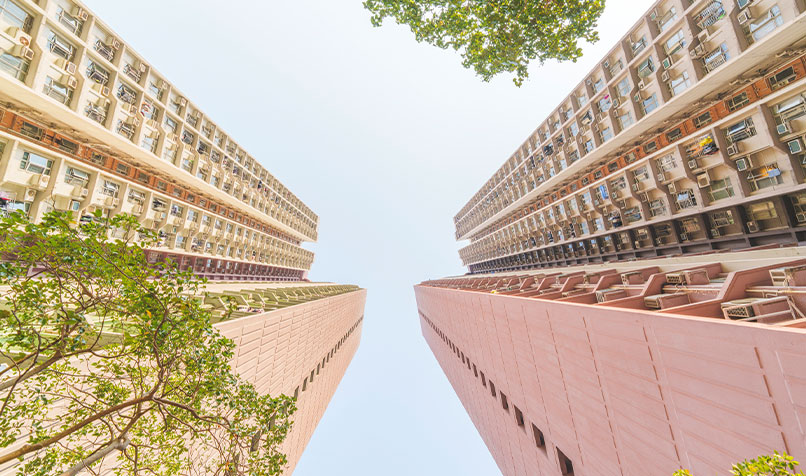Loading component...
At a glance
By Aidan Ormond
Themed "Advance with Confidence. Seize Opportunities. Strive for High-quality Development," the budget, announced on Wednesday morning, aims to revitalise Hong Kong's post-pandemic economy following a sluggish 2023.
With growth forecast to be between 2.5 to 3.5 per cent for the upcoming financial year, the government expects the deficit to decline to HK$48.1 billion for 2024-25 from HK$101.6 billion in 2023-24. Fiscal reserves are expected to decrease to HK$685.1 billion by March 2025 from HK$733.2 billion at the end of March this year.
Chan attributes last year's slower-than-expected economic growth to global interest rate hikes, economic deceleration, and ongoing geopolitical tensions.
“Notwithstanding a reduction in total government expenditure after the pandemic, revenue from land premium and stamp duty has decreased under a softened asset market, resulting in a larger deficit than expected,” Chan says.
Looking forward, Chan adds that “the external environment will continue to put pressure on Hong Kong’s exports of goods”. He did, however, also say “global monetary conditions may ease progressively over the course of the year, which would bode well for export performance.”
Key takeaways from Hong Kong’s 2024-25 Budget
- Certain stamp duties on property transactions such as Special Stamp Duty (SSD) will be removed with immediate effect
- Salary tax and tax under personal assessment for 2023-24 will be reduced
- The salaries tax rate for taxpayers’ earnings over HK$5 million will be increased slightly
- HK$1.1 billion distributed to promote mega events and boost tourism
- HK$100 million given to promote the sustainable development of financial services
- Cyberport will receive $HK3 billion for the launch of a AI Subsidy Scheme
- The government will launch a HK$10 billion New Industrialisation Acceleration Scheme to support enterprises in a range of sectors including life and health technology
Residential property boost

The big news from yesterday’s budget measures came in the residential property sector. Taking effect immediately, the government has cancelled all demand-side management measures for residential properties.
This means SSD and Buyer’s Stamp Duty (BSD) need not to be paid for any residential property transactions starting from today. This is a welcome announcement and is consistent with CPA Australia’s call in October 2023 to remove such taxes when the systemic risks from speculative investment dissipates.
Additionally, stamp duties payable on the transfer of real estate investment trust (REIT) units and the jobbing business of option market-makers will be waived.
The Hong Kong Government will also provide rates concession for non-domestic properties for the first quarter of 2024/25, subject to a ceiling of HK$1000 for each rateable property.
Support for SMEs
To help SMEs in tackling their capital-flow problems, the government will extend the application period for the 80 per cent and 90 per cent Guarantee Products under the SME Financing Guarantee Scheme for two years to the end of March 2026. This is also consistent with our recommendation in CPA Australia’s Pre-Budget submission to the Hong Kong government.
SMEs in the food and beverage industry and the retail industry will be invited to select suitable options among ready-to-use basic digital solutions and apply for subsidies on a matching basis early this year under the Digital Transformation Support Pilot Programme.
Tax changes
The government will reduce salaries tax and tax under personal assessment for the year of assessment 2023-24 by 100 per cent, subject to a ceiling of HK$3,000, which is lower than the HK$10,000 CPA Australia recommended.
What’s more, it is expected that the proposed increased in the salaries tax rate for those earning over HK$5 million a year to 16 per cent will impact around 12,0000 taxpayers and raise HK$190 million per year for the government.
The government will further enhance the preferential tax regimes for related funds, single family offices and carried interest, including reviewing the scope of the tax concession regimes, increasing the types of qualifying transactions and enhancing flexibility in handling incidental transactions.
The aim of this is to attract more funds and family offices with potential to set up a presence in Hong Kong, however no further details were released.
Additionally, the first registration tax (FRT) concessions for electric vehicles, due to cease at the end of March, will be extended for two years, with the concessions reduced by 40 per cent.
Meanwhile, e-PCs valued over HK$500,000 before tax will not be entitled to concessions under the "affordable users pay" principle.
As for other types of electric vehicles, including electric commercial vehicles, electric motorcycles and electric motor tricycles, the FRT will continue to be waived in full over the next two years.
In other tax measures, the duty on tobacco is increasing. Cigarette packets are now 25 per cent more expensive than a year ago, meaning a pack of 20 now costs over HK$90.
Government Artificial Intelligence subsidy
An allocation of HK$3 billion will go to Cyberport for the launch of a three-year AI Subsidy Scheme to support local universities, research institutes and enterprises to use the Centre’s computing power and help achieve scientific breakthroughs.
Green and sustainable finance hub boost
With the government’s wish to strengthen Hong Kong’s green and sustainable finance development, enterprises must now align their practices in sustainability disclosure with international standards.
The Financial Services and the Treasury Bureau and the Securities and Futures Commission (SFC) will formulate a roadmap and vision statement to help companies and financial institutions in sustainability reporting and the analysis of relevant data.
Reactions to Hong Kong’s 2024 Budget
Anthony Lau FCPA (Aust.)
Divisional Councillor, Greater China & Co-Chairperson of Taxation Committee, Greater China
Partner, Tax & Business Advisory Services and International Tax, Deloitte China
“We note that the Budget includes several measures to strengthen trade and economic cooperation with countries in the Middle East. These include signing a Comprehensive Double Taxation Agreement with Bahrain and negotiating with Saudi Arabia on an Investment Promotion and Protection Agreement (IPPA).
“We support these measures because the Middle East has substantial capital. Six out of the world's 15 largest sovereign wealth funds are from Gulf Cooperation Council (GCC) countries. They have been actively expanding their investment channels and are keen on China and Asia.
“We recommend that the government leverage Hong Kong's position as a ‘super-connector’ to strengthen collaboration between GCC countries and Chinese enterprises. For instance, exploring the possibility of exempting withholding tax on interest and dividends generated by GCC sovereign wealth funds investing in strategic emerging industries in the China through Hong Kong.”
Janssen Chan FCPA (Aust.)
Divisional Councillor – Greater China & Co-Chairperson of Taxation Committee – Greater China
Managing Director, Tax & Business Advisory Services, Anssen Consulting Limited
“We welcome the government's extension of the application period on the SME Financing Guarantee Scheme to the end of March 2026, covering 80 per cent and 90 per cent guaranteed products. This extension is helpful for SMEs to address cash flow issues.
“However, including 100 per cent guaranteed products is equally essential for SMEs. It is suggested that the government also extend the application period for the 100 per cent guaranteed products to aid SMEs in managing expenses for salaries and rent.
“Moreover, we suggest government provides tax deductions and training subsidies to employers hiring eligible older employees and imported workers, as well as increasing the ceiling of 100 per cent tax rebate on the final profits tax to HK$10,000.”
Adam Chiu CPA (Aust.)
Member of Taxation Committee – Greater China
Partner, Vialto Partners
“Regarding the 100 per cent tax rebate on the 2023/24 final salaries tax, we believe that citizens still face financial pressures and suggests raising the ceiling to HK$10,000 instead of HK$3,000. Under the high interest rates environment, many are under significant financial pressure.
“We suggest government raise the basic allowance to HK$150,000, child allowance to HK$150,000 per child, married person’s allowance to HK$300,000, and the cap on home loan interest and domestic rent deductions to HK$150,000.
“We support the government's plan to extend the After School Care Program for pre primary children to cover all districts in Hong Kong. To further support parents, we suggest the government introduce a tax deduction for childcare expenses, with a ceiling of HK$60,000.”

